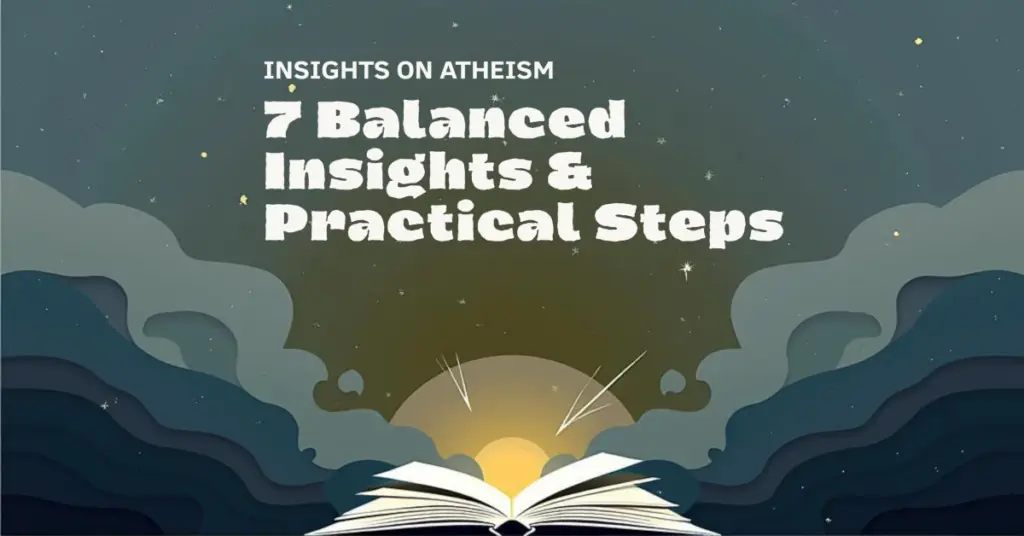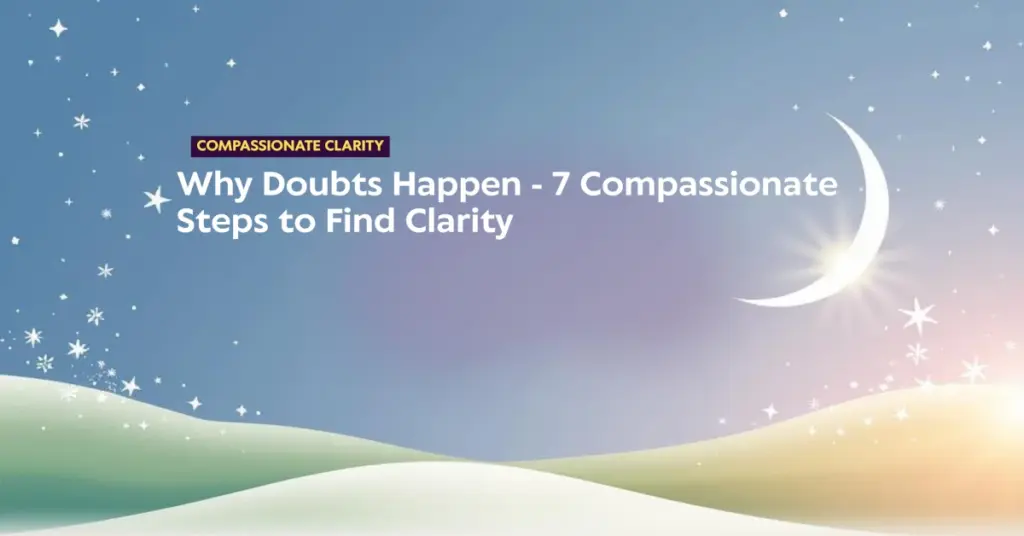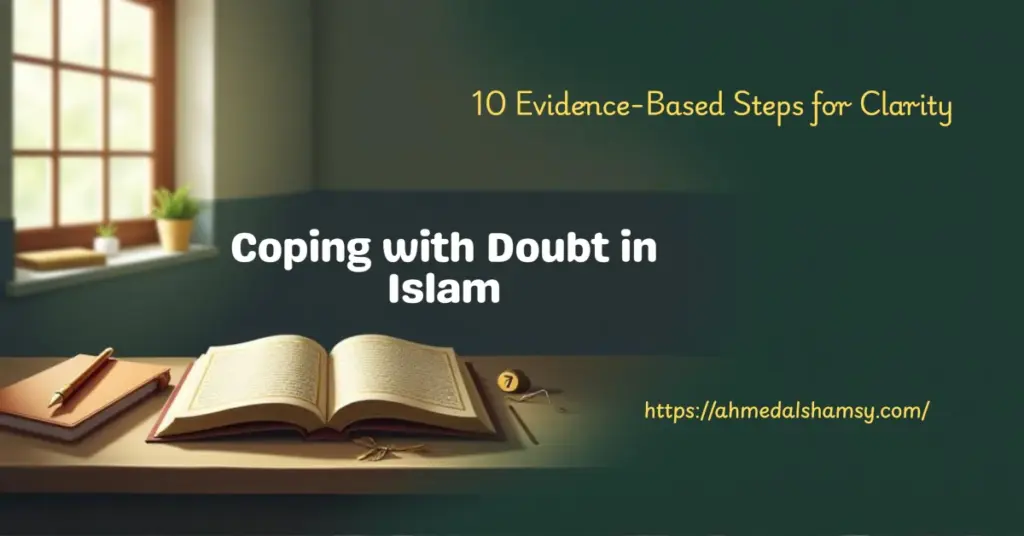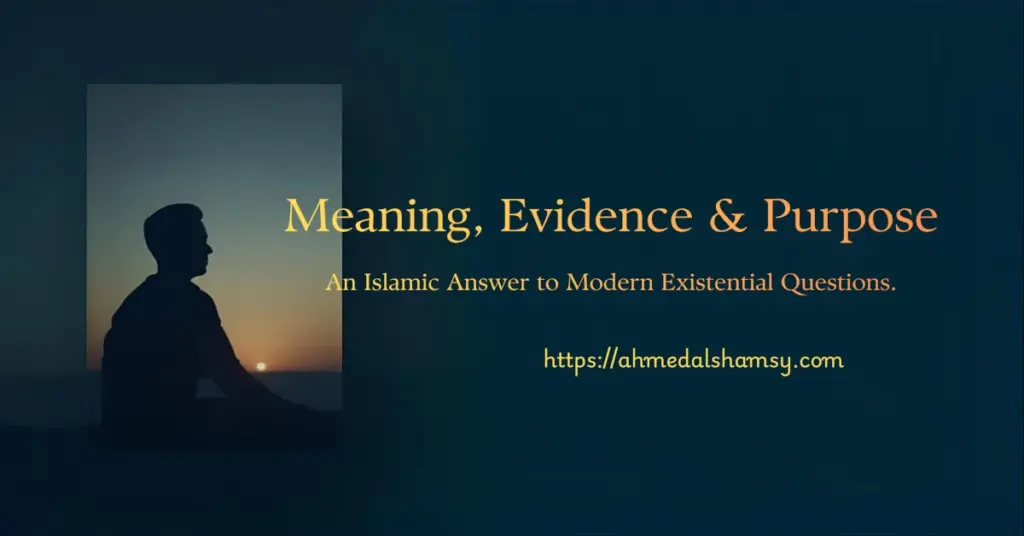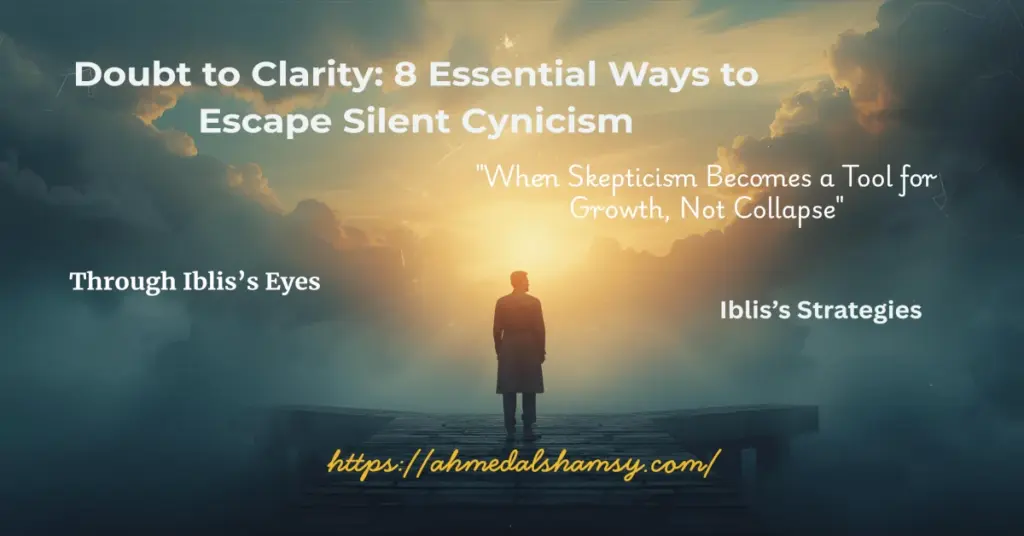AIM — Free & Open
CC BY-NC-SAAIM is free and open for non-commercial reuse. Try a free AIM pilot (CSV + memo) — support is optional and helps sustain translations, research, and free access.
Introduction — why this conversation matters
Questions about God, meaning, and evidence are as old as philosophy itself. Why doubt happen? In the 21st century these questions circulate about Atheism and Doubts in Islam, more widely and more publicly than before — in podcasts, comment threads, university seminars, and intimate conversations. For many people the stakes are personal: what they believe affects how they parent, vote, work, and care for others. For communities the stakes are civic: how do we live together across deep disagreement?
Table of Contents
This article offers seven carefully framed insights into atheism and doubts in Islam, drawing on Qur’anic patterns of engagement, philosophical clarity, and contemporary psychology. The tone is academic yet conversational: we aim to inform and to equip readers — Muslim and non-Muslim alike — with tools for honest conversation, compassionate care, and constructive practice.
1 – First things first: define your terms
Atheism and Doubts in Islam Debates collapse quickly when people mean different things by the same words. Begin by clarifying.
Atheism is not one thing. Useful distinctions:
- Metaphysical atheism: the claim that no deity exists. This is an ontological position — a statement about what exists.
- Methodological naturalism: the working assumption of much contemporary science that natural processes suffice to explain observable phenomena. Adopting this method does not always imply metaphysical atheism, though it sometimes leads there.
- Practical or cultural atheism: living as though God makes no difference — not necessarily an explicit doctrine, but a lifestyle.
Doubt likewise appears in different registers:
- Intellectual doubt: arises from felt gaps in argument, perceived lack of evidence, or philosophical puzzles.
- Emotional doubt: follows trauma, disillusionment with religious institutions, or personal suffering.
- Existential doubt: questions about meaning, purpose and value.
Why does this matter? – Atheism and Doubts in Islam -, Because the appropriate response depends on the kind of doubt. A forensic rebuttal suits the intellectual skeptic; pastoral listening and therapeutic resources suit the wounded. Confusing categories turns conversation into fruitless combat.
2 – What are the common objections that underlie atheism?

Atheism and Doubts in Islam Public debate often recycles a handful of core objections. Understanding their shape helps interlocutors address the real concern rather than a rhetorical caricature.
The problem of evil. Why would an omnipotent, benevolent God permit gratuitous suffering? For many doubters this is not an abstract logical puzzle but a moral wound: “How could God allow X to happen to someone I love?” Philosophical theodicies try to answer, but pastoral responses must begin with empathy 1 .
Evidential demands. Some ask: “Why believe without the sort of empirical proof we expect in science?” This presses epistemology — what counts as evidence and how different domains of inquiry (science, history, metaphysics) set different standards 2 .
Moral autonomy. Critics contend that morality can be grounded secularly, and that religions sometimes constrain moral reasoning. This raises metaethical questions about objectivity, grounding, and motivation for moral action 3 .
Religious pluralism. Competing truth claims among religions lead some to conclude that all are human constructs. Others ask for criteria by which to adjudicate competing claims.
Science and natural explanation. Advances in cosmology, biology, and neuroscience have displaced some earlier theological claims; some readers infer that natural explanations entirely supplant theistic ones.
Atheism and Doubts in Islam, Each objection contains variations — sometimes mixed moral, sometimes cognitive, sometimes social. The right move is to identify which variation you face.
3 – How the Qur’an models engagement with skeptics

Atheism and Doubts in Islam, A striking feature of the Qur’an is its dialogical and rhetorical method. Three guidelines stand out:
1. Questioning as an invitation. Instead of issuing bare assertions, many Qur’anic passages answer skepticism with questions: “Were they created by nothing?” or “Who sustains you in the heavens and earth?” This method nudges the interlocutor to examine basic assumptions and to notice the contingency of existence 4 .
2. Signs (āyāt) as cumulative pointers. The Qur’an repeatedly points to natural order, human disposition, and history as signs that invite inference to a transcendent source. These are not proofs in the modern, mathematical sense; they aim to reframe perception and to open the heart to wonder 5 .
3. Dialogue and patience. Prophetic narratives model patient discourse and moral challenge rather than rhetorical shaming. The Prophet’s interactions often combine evidence, moral exhortation, and empathetic address — an approach useful in our polarized debates 6 .
Atheism and Doubts in Islam, These features suggest a posture: take doubts seriously, ask clarifying questions, and pair argument with lived moral credibility.
4 – Philosophy helps: up to a point
Philosophical reasoning clarifies concepts and can change the force of the conversation, but it rarely forces conversion.
Philosophy’s constructive roles:
- Conceptual clarity. Philosophy refines terms — “cause,” “explanation,” “necessity” — dissolving some apparent contradictions.
- Probative balance. Cosmological, teleological, and moral arguments can shift probability assessments; they provide reasons that may be cumulative.
- Epistemic humility. Contemporary philosophy also highlights the limits of reason — where empirical evidence is decisive versus where metaphysical inference is in play.
Examples:
- Cosmological reasoning asks why there is something rather than nothing. It can show that a purely contingent series needs an explanation, but it does not automatically identify a particular religious tradition.
- Fine-tuning arguments note the apparent delicacy of physical constants and suggest that naturalistic accounts (multiverse, deeper physical laws) are alternatives. None yields certainty but each reshapes probabilistic reasoning 7 .
- Moral arguments probe whether objective moral values require theism; secular accounts (constructivist, evolutionary, contractual) offer rival explanations.
Atheism and Doubts in Islam, Good interlocutors present such arguments honestly and circumspectly: they show strength where present and limits where warranted. Overclaiming destroys credibility.
5 – Psychology matters: how belief and unbelief form
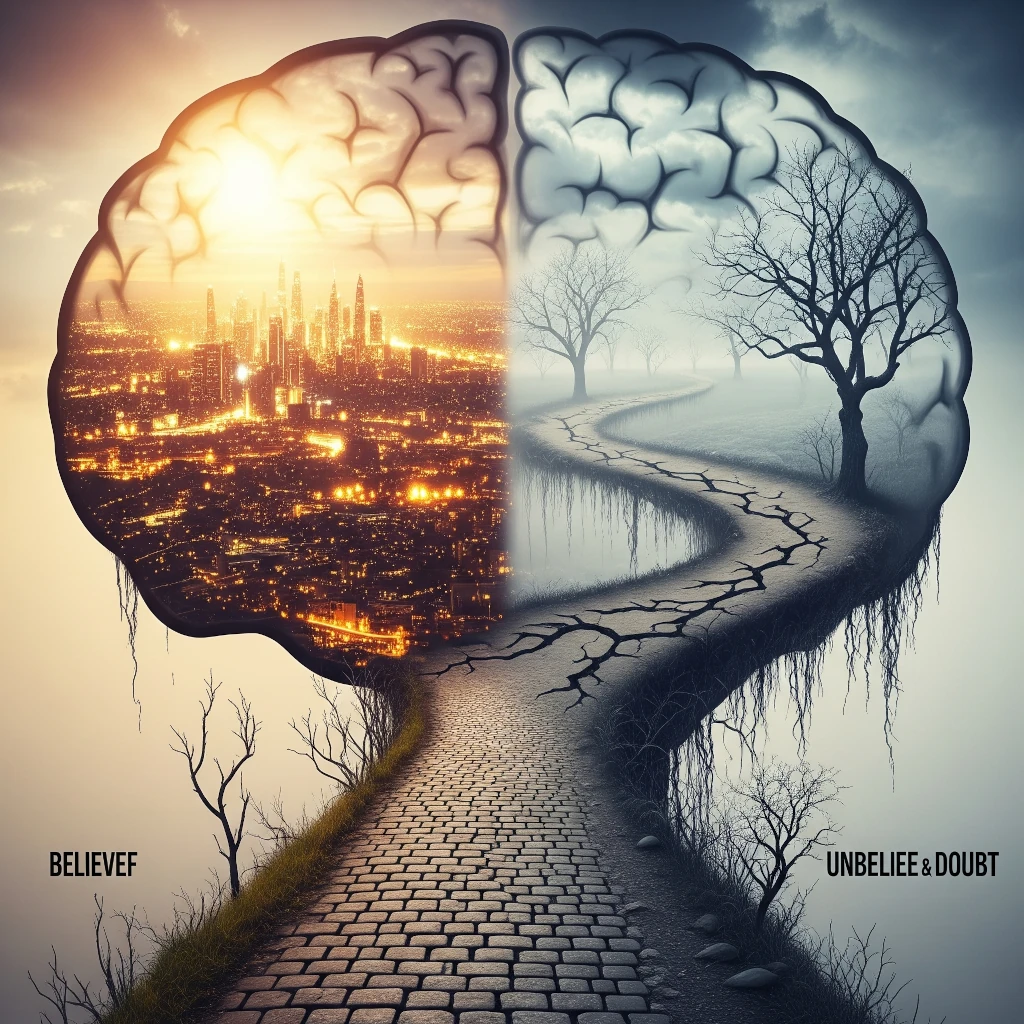
Atheism and Doubts in Islam, Belief and its loss are not purely intellectual. Psychology shows three influential factors:
Cognitive style. Individuals differ in epistemic openness, tolerance for ambiguity, and need for evidence. Some people are natural sceptics and demand high evidentiary thresholds; others are more trustful. Dialogue should match the cognitive style to avoid frustration 8 .
Social and relational causes. Many who leave faith cite personal betrayal, institutional abuse, or moral hypocrisy. Addressing such harm — with acknowledgement, accountability, and therapeutic resources — is a prerequisite to any meaningful philosophical engagement 9 .
Existential and narrative identity. Humans constitute their lives through stories. If a person’s life narrative fractures — by loss, migration, or trauma — assumptions about meaning can collapse. Rebuilding coherent narrative identity often requires communal practices and time 10 .
These findings suggest a practical priority: attend to wounds and relationships before pressing purely intellectual rebuttals.
6 – Practical strategies for compassionate engagement
Atheism and Doubts in Islam, Whether you’re responding to your own doubt or caring for someone else, these practical steps are evidence-informed and relationally wise.
- Listen first. Begin by hearing the story — the concrete events, feelings, and arguments that led to doubt. People who feel heard are more open to dialogue.
- Classify the doubt. Is it intellectual? Emotional? Existential? This determines the next step.
- Clarify evidence standards. Ask what would count as evidence for the other person; this helps avoid talking past one another.
- Share resources, not slogans. Offer a short reading list: primary texts, balanced critiques, and accessible philosophical works. Encourage primary-source reading.
- Model vulnerability and testimony. A brief personal narrative about a time you wrestled with doubt and how you processed it is often more persuasive than abstract argument.
- Repair harm where present. If the person was hurt by a community or leader, prioritize restoration and counseling.
- Propose experiments in practice. Suggest time-limited practices (e.g., 30 days of communal worship or service) and evaluate outcomes together. Embodied practice often reorients the will and the mind 11 .
Atheism and Doubts in Islam Framing conversations as joint exploration reduces antagonism and invites trust.
7 – When disagreement persists: integrity, cooperation, and shared projects
Atheism and Doubts in Islam, Not all conversations end with agreement. The goal should be a sustainable civic ecology that honors conscience while enabling cooperation.
- Respect conscientious dissent. Allow friends or colleagues to live according to honest conviction, whether religious or non-religious. Coercion or shaming deepens division.
- Pursue shared moral projects. Work together on poverty, refugee support, or environmental resilience — areas where different worldviews converge on common action. Cooperative projects model the moral quality of belief.
- Witness rather than wage war. A consistent life of ethical action and open charity often persuades more than polemic.
Atheism and Doubts in Islam, In short: disagreement need not preclude cooperation, dignity, or civic friendship.
FAQs
Does doubt mean I’m a bad Muslim?
No. Islamic tradition includes prophets and companions who questioned and sought clarification. Sincere inquiry is honored; when doubt produces distress, seek counsel and community.
Can science disprove God?
Science assesses empirical claims about the natural world. It does not, by itself, settle metaphysical questions about ultimate reality. Many thoughtful people find science and faith compatible; honest assessment recognizes the limits and strengths of both [2][7].
How do I talk to a friend who says they’ve “become atheist”?
Begin with listening. Ask about their reasons. Offer to read together. Keep the relationship primary; avoid trying to “win” the conversation. Repair trust and build common ground before elaborate argumentation.
Conclusion – doubt as doorway, not a dead end
Atheism and doubt confront us with difficult questions — about suffering, evidence, and meaning — that deserve careful, humane attention. The Qur’anic practice of dialogical questioning, philosophically informed argument, and psychologically wise pastoral care together offer a robust approach: clarify terms, listen for wound and reason, respond with humility, and invite tested practices.
Whether a person moves toward renewed conviction, settles into honest unbelief, or remains in reflective searching, the healthiest responses combine intellectual integrity, moral seriousness, and relational repair. In a plural public square, that posture preserves human dignity and the possibility of ongoing mutual transformation.
References
- The Noble Qur’an. Translation referenced: Muhammad Abdel-Haleem, The Qur’an: A New Translation (Oxford University Press). The Qur’an’s rhetorical mode — question, sign, and dialogue — informs the article’s engagement model [Qur’an 2:164; 29:20; 13:28]. ↩︎
- Karl Popper; Philosophy of Science. Works introducing methodological naturalism, demarcation, and the limits of scientific proof are essential for distinguishing scientific method from metaphysical claims (see Popper’s writings on falsifiability). ↩︎
- J. L. Mackie, “Evil and Omnipotence,” Mind (1955). A classic articulation of the problem of evil that anchors much contemporary critique and subsequent theodicy responses. ↩︎
- Tafsir literature – selected classical references. Ibn Kathir, al-Tabari and modern accessible tafsir collections illuminate how classical exegetes responded to skeptical challenges and contextualized verses addressing unbelief. ↩︎
- William Lane Craig, Reasonable Faith. An accessible analytic defence of cosmological and moral arguments; useful for readers wanting a rigorous apologetic resource. ↩︎
- Al-Ghazālī, Iḥyā’ ʿUlūm al-Dīn. Classical resources on spiritual formation, doubt, and the role of practice in cultivating conviction. Al-Ghazālī’s blend of reason and practice remains influential for pastoral strategy. ↩︎
- Fine-tuning literature. Overviews of the fine-tuning debate and multiverse responses appear in contemporary philosophy and cosmology literature (e.g., works by John Leslie, Robin Collins). These texts map probabilistic reasoning about cosmological constants. ↩︎
- Kenneth I. Pargament, The Psychology of Religion and Coping. A scholarly treatment of religious coping, cognitive styles, and how people use belief systems to manage stress and meaning. ↩︎
- Religious trauma and pastoral counseling. Sources on religious abuse, moral injury, and recovery, including Marlene Winell’s work on Religious Trauma Syndrome and clinical literature on faith-sensitive therapy. Addressing harm is crucial before intellectual engagement. ↩︎
- Charles Taylor, A Secular Age. A sweeping study of secularization that situates contemporary unbelief in historical and social context — valuable for understanding cultural shifts in belief and doubt. ↩︎
- James K. A. Smith, You Are What You Love. Explores how practices and habits form desire and identity — supports the recommendation to “experiment” with embodied practices as a test of conviction. ↩︎
Discover more from Ahmed Alshamsy
Subscribe to get the latest posts sent to your email.

